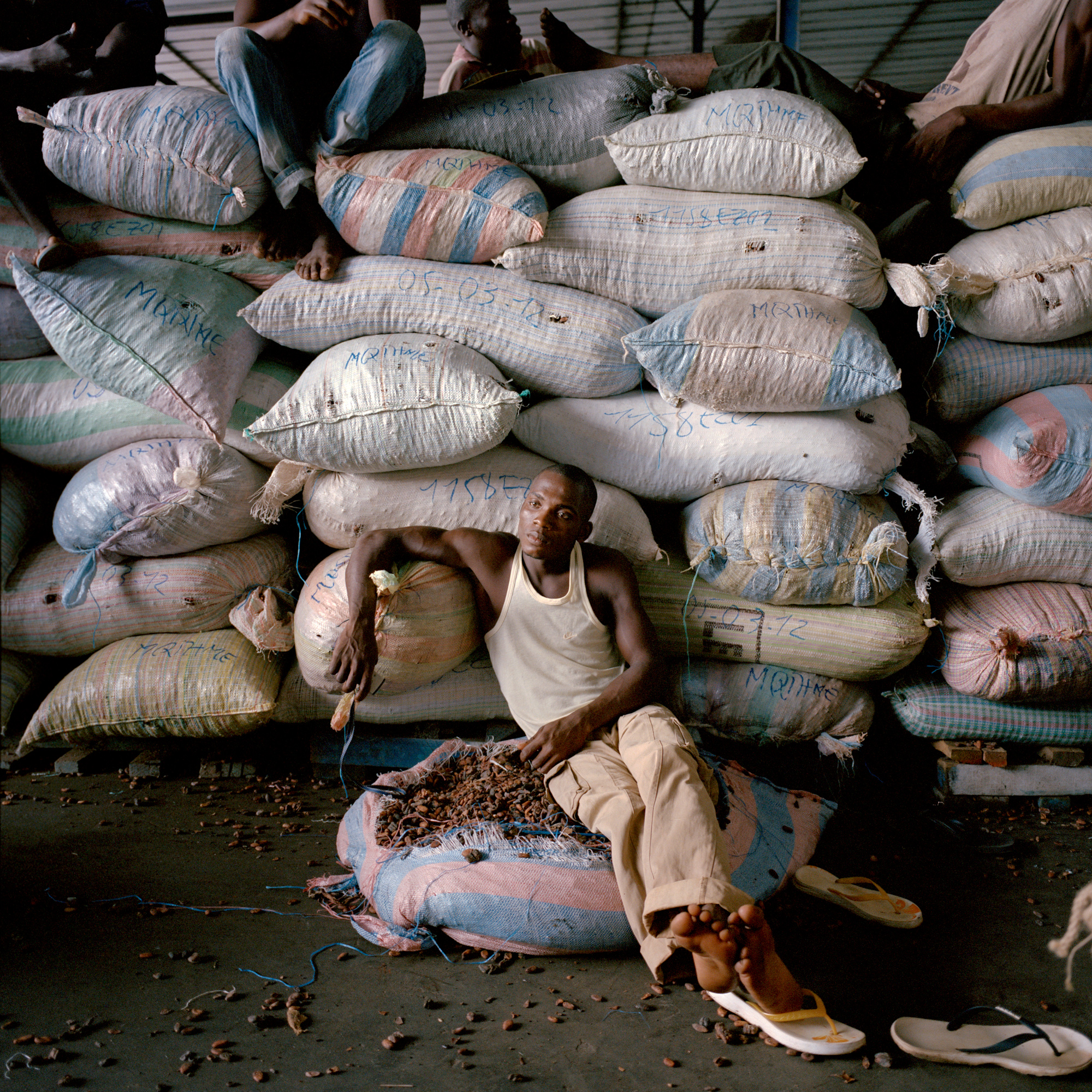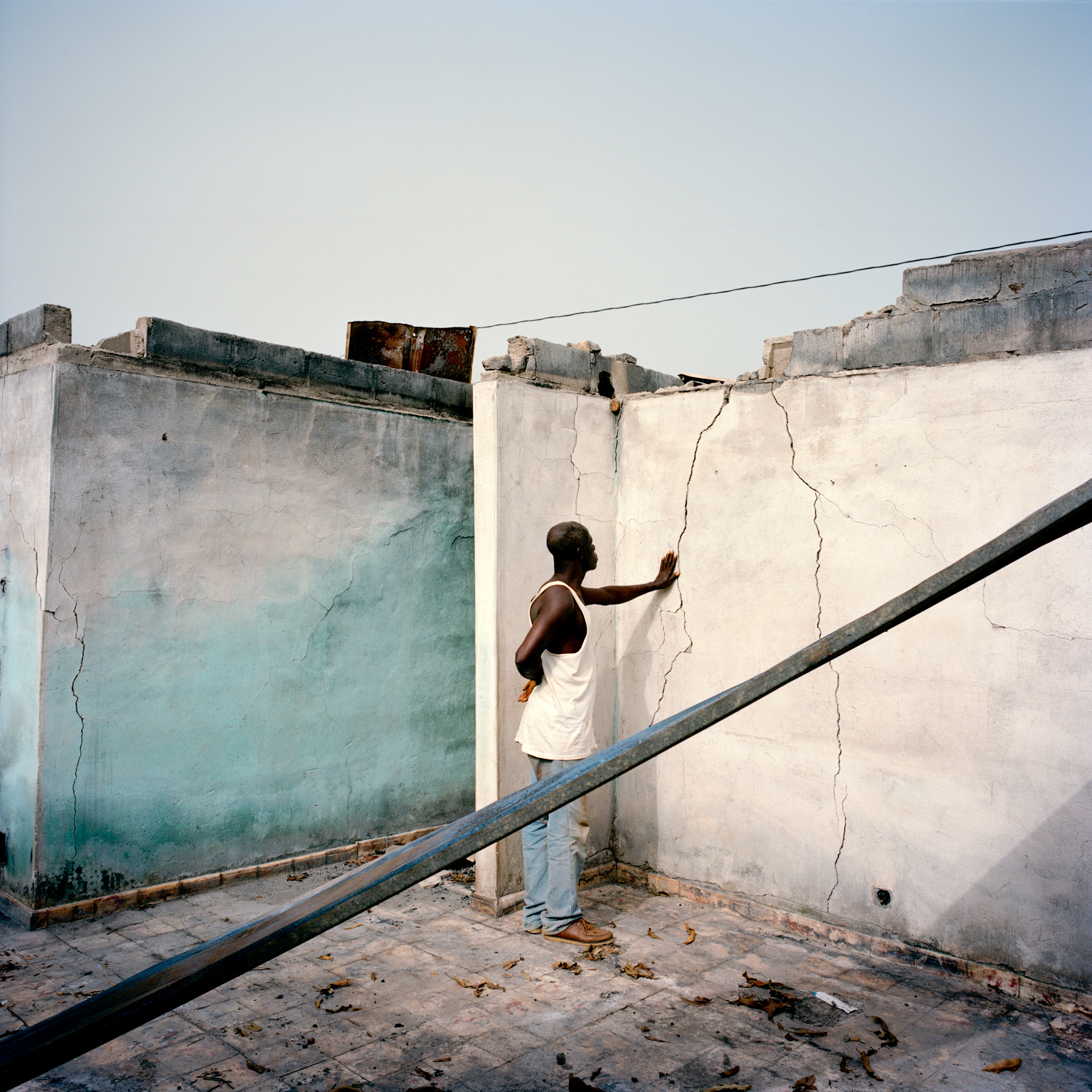
Unemployment is a huge problem in Ivory Coast, particularly among young adults. And when you combine joblessness with the high expectations that students had (until recently) upon graduation from university—their parents, after all, had often made handsome livings when the Ivorian economy was booming in the 1970s and 80s—you end up with an explosive sense of disappointment. In San Pedro we went to visit Saf Cacao, the largest nationally owned cocoa exporter in Ivory Coast, and spent time with some of the young men who work there as manual laborers.
Pierre Henri is tall and lanky, with the broad shoulders and long arms of a basketball player. He is 36, and in 2008 he left the cocoa plantation where he worked to move to San Pedro for a better job. Now he unloads sacks of cocoa from overflowing delivery trucks for three or four dollars a day. It's a job, but not one he loves. "They see us as laborers, that's it," he told me, gesturing to a dozen or so of his comrades, who were sitting on piles of burlap bags of cocoa between shifts. "They don't see us as human beings."
But it's the political tension in Ivory Coast that really gets him exercised.
"All these foreigners are here—Moussi, Dioula, Baoulé, and so on—but we were here first. This is our land," Henri said. "But then [newly elected president] Alassane Ouattara sent his troops here and we fled into the bush. Some of us didn't make it. The problem is that we're too nice. We welcomed the foreigners here and because of this generosity, they kill us."
Ouattara defeated incumbent Laurent Gbagbo in the December 2010 election that was declared largely free and fair by the international community. Gbagbo's refusal to step down led to five months of war, ending in his ouster in April of 2011. But his most passionate followers, like Henri, still long for his return. "Our wish is for Gbagbo to come back tomorrow," Henri said. "Even today, he is my president. For all Ivorians—all real Ivorians—Gbagbo is the president."
On the other side of the warehouse another group of young men watched our conversation. One of them was Sekouba Koné, a 26-year-old warehouse sweeper from northern Ivory Coast, near the border with Mali. "I'm not exactly happy with the way Ouattara came to power—all the killing, setting people on fire, human rights violations," Koné told me. "I want democracy, and with all the violence around the elections, you can't be truthfully happy."
After Koné finished his studies he went to school to become a police officer. "But Gbagbo was in power, and for a northerner like me, it was impossible to get a job," Koné told me. "I have my diploma but I work as a street sweeper—it shouldn't be like that. We have to reconcile with Gbagbo's side. But we're too divided. All these problems that we have, it's because of politics."






